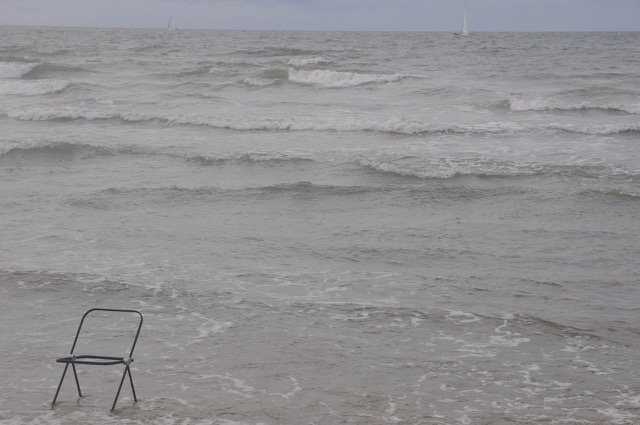Open North Sea Desks
Together with researchers, biologists, lawyers, ecologists and artists, the Embassy of the North Sea conducts research into a wide range of subjects, from maritime rights to political animals, from contemporary North Sea scents to new institutions, and from eel health to new words for our connection with nature. If you would like to talk to experts and representatives from the Embassy, visit our public help desks, open on Saturday 16 November from 15.30.
Legal Affairs Desk
Lawyers Laura Burgers and Daphina Misiedjan argue for more attention in our legal system for the sea and its inhabitants, while investigating if the North Sea should become its own legal entity. At the Legal Affairs Desk, they take you on an exploration of the themes related to this, including maritime law, rechtspersoonlijkheid or ‘personal rights’ and representation.
New Language Desk
Language illustrates what we find important. Explorer and biologist Arita Baaijens is working on Paradise in de Polder (Paradise in the Polder), a dictionary for the future in which she collects hopeful language that sharpens the senses and reconnects us with nature. At the New Language Kiosk you can dive with Baaijens and ecologist Jelle Troelstra into the word ‘verzeeën’, meaning ‘coalescing with the sea after prolonged contact.’ What images or memories does this evoke? [Only in Dutch]
Imagination Desk
A new policy requires a new way of listening and looking, whereby the human perspective is no longer our only starting point. It is quite a paradigm shift to start looking at non-human beings as political subjects. Sound artist and board member of the Embassy of the North Sea Harpo ‘t Hart guides you in this endeavor to become ‘less human’.
Research Desk
In 2020, the Embassy of the North Sea will conduct research into three cases in and around the North Sea – the relationship between eels and humans in Amsterdam, the future of the Delta Works in Zeeland, and underwater sounds in the North Sea. We listen with all our senses to North Sea communities of people, plants, animals and microbes. Theun Karelse explores the role of fieldwork, and Anne van Leeuwen explains more about the approach of the Embassy.
Sea Sounds Desk
The Embassy of the North Sea, together with radio-maker Jesper Buursink, takes a journey through the eight countries of the North Sea to look for stories from people who work around and with the sea. We are also building a network of representatives – people who work to emancipate the North Sea and its marine life. Come and listen to reports made on location by Jesper Buursink with Carlijn Haringsma. [Only in Dutch]
Sea Creatures Desk
In and around the North Sea we live together with all kinds of wonderful sea creatures. We can usually name the animals we eat – plaice, herring and cod – but what exactly do they do? Have you ever heard of dead man’s fingers, cuttlefish, sea sparkle, bladder wrack, necklace shells, pipefishes, ocean quahogs, dahlia anemones and brittle stars? Discover more about the wonderful life of the creatures in the North Sea with marine biologist Maarten Erich.
Clean Beach Desk
Beach waste research shows that there are no fewer than 81 pieces of disposable plastic per 100 metres of non-tourist beach, says Ewout van Galen, Clean Sea programme leader at Stichting De Noordzee (North Sea Foundation). This is why the foundation organises the annual Boskalis Beach Cleanup Tour in which thousands of volunteers come together for a clean beach and a clean North Sea. Have a conversation with Van Galen and discover how much waste washes up on a square metre of beach.
Anthropocene Desk
At the Anthropocene Desk, professor of culture, landscape and nature, Erik de Jong, talks about our new relationship with nature. In our time, nature and culture are intertwined in a complex way. We call this new era the Anthropocene. What exactly is the Anthropocene and what does it say about humans? What new limits and possibilities are there? What is the role of nature and what will our future look like?
Future Generations Desk
Educational programme for children between 6 and 12 years old, under the guidance of museum educator Madeleine Maatstap.
How does the seahorse prefer to live? What does a jellyfish need? What makes the sea spark happy? Take on the role of your favorite sea creature and discover what your world looks like. With your own passport, visit all the desks of the Embassy of the North Sea to receive various assignments, and find out more about which sea creature you are, how you live, who your friends are, and what your future looks like.

